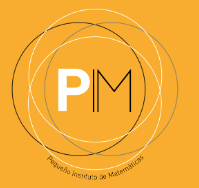Investigación
Noticias Destacadas
 Agenda del Departamento Agenda del Departamento |
- Información (provisional) sobre grupos y horarios de las asignaturas impartidas por el Departamento de Matemáticas, para el curso 2023-2024.
- Propuestas de Trabajos de Fin de Grado para el curso 2023-2024.
|
Canal @matematicasuamEnlace al canal del Departamento en youtube. |
PIM (Pequeño Instituto de Matemáticas)Con el objetivo de fomentar el interés por las matemáticas y dirigido a jóvenes entre 14 y 18 años, nace este proyecto de Instituto de Ciencias Matemáticas (ICMAT) en colaboración con nuestro Departamento, la Universidad Autónoma de Madrid y la Real Sociedad Matemática Española. El proyecto comienzó en el curso académico 2022-2023. Ampliar información en su página web. |
Machine learning in Madrid (zoom)
Lunes, 20 de diciembre de 2021, 12-13h
Ponente: Javier Portilla (Instituto de Óptica «Daza de Valdés» - CSIC)
Título: Deterministic decoupling of features: a normalization framework for signal and data science
Abstract:
------------------------------------------------------------
Enlace: https://us06web.zoom.us/j/88977966746?pwd=OGpSNnFSMGNDZnNaOHBoclljRFZ0UT09






